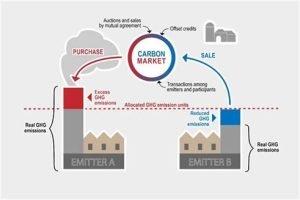Prelims – 3rd Nov 23
World Desertification Day 2023 – 17 June
- Desertification, along with climate change and the loss of biodiversity, were identified as the greatest challenges to sustainable development during the 1992 Rio Earth Summit.
- In 1994 UN General Assembly established the United Nations Convention to Combat Desertification (UNCCD), the sole legally binding international agreement linking environment and development to sustainable land management and declared 17 June “World Day to Combat Desertification and Drought”.

Land Degradation Neutrality
As per UNCCD, LDN is a state whereby the amount and quality of land resources, necessary to support ecosystem functions and services and enhance food security, remains stable or increases within specified temporal and spatial needs.
Principles of LDN
- Avoid Land Degradation
- Reduce Land Degradation
- Reverse Land Degradation
World Cities Culture Forum
- Recently, Bengaluru has become the first Indian city to become part of the World Cities Culture Forum (WCCF).
- WCCF was founded in 2012 by Justine Simons OBE, London’s Deputy Mayor for Culture & the Creative Industries.
- It is a global network of cities that share research and intelligence, and explore the role of culture in future prosperity.
- The network currently has 40 cities spanning six continents.
- World cities culture summit hosted on a rotating basis by city partners, an unprecedented gathering of city leaders sharing ideas and knowledge about culture’s role in public policy in a world city context.
Carbon Market
Carbon markets enable the buying and selling of carbon emissions with the objective of reducing global emissions. Carbon markets existed under the Kyoto Protocol, which is being replaced by the Paris Agreement in 2020.

Benefits:
- Emissions trading achieves the environmental objective – reduced emissions – at the lowest cost.
- Emissions trading promotes creativity and identifies the most affordable alternatives to help businesses to become more sustainable.
- It provides incentives that reduce the cost of cleantech options. These include tax breaks, cutting tariff for green products or renewable energy
- Emission trading generates revenues for government which can be used to reinvest in green development projects.
- Carbon trading is much easier to implement than the expensive direct regulation and the unpopular carbon tax.
- By allowing the open market to set the price of carbon allows for better flexibility and avoids price shocks or undue burdens.
- Cap and trade schemes have been very efficient in addressing environmental problems in the past, with trading in sulphur dioxide permits aiding to limit acid rain in the United States.
- Emissions trading can provide a global response to a global challenge.
